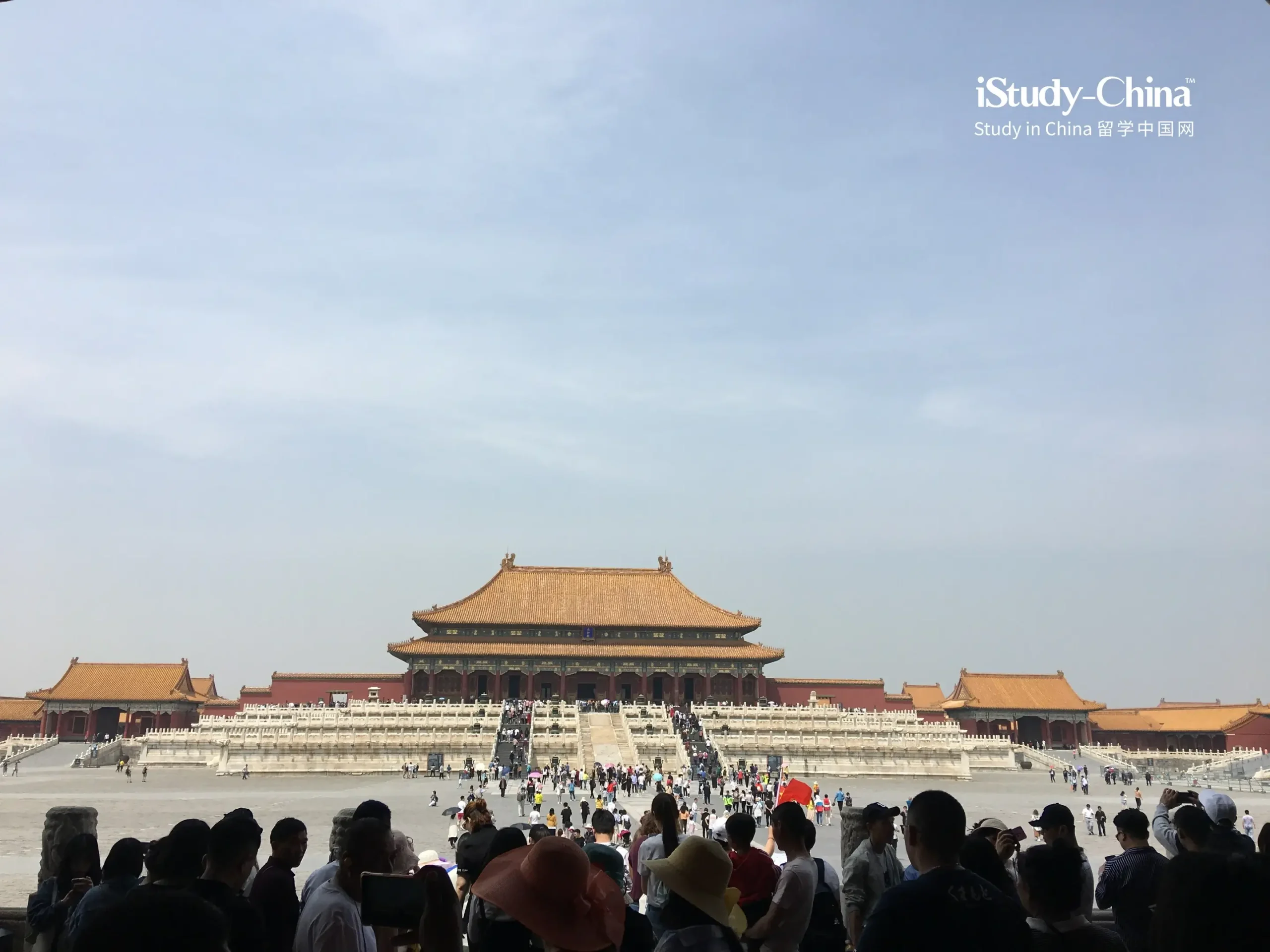School Badge

About The China University of Geosciences
The China University of Geosciences,Beijing (CUGB) is situated on Xueyuan Road, in the Haidian District of Beijing, China—an area which houses many illustrious academic institutions. It is a national key university of the People’s Republic of China, administered directly by the Ministry of Education, which established the University in partnership with the Ministry of Natural Resources. In 2017, CUGB was selected into the Double First Class Disciplines University1 plan.CUGB evolved from the Beijing Institute of Geology, which was formed in 1952 by merging the Departments of Geology of Peking University, Tsinghua University, Tianjin University and the Tangshan Institute of Railways. CUGB is therefore a university with a profound heritage as well as its own distinctive features. In 1970, the Beijing Institute of Geology moved its campus to Wuhan. In 1978, under the direct care of Comrade Deng Xiaoping, operations of the Beijing Institute of Geology were resumed at the original campus in Beijing. Established in both Beijing and Wuhan in 1987, the China University of Geosciences in Beijing (CUGB) was one of the first 33 universities in China to pilot graduate schools, and was among the first batch to enter the ranks of Project 2112 and Project 985 Innovative Platforms for Key Disciplines3. In February 2000, responsibility for CUGB passed from the Ministry of Land and Resources to the Ministry of Education. In March 2005, the original university campus closed, and university management is now carried out respectively in Beijing and Wuhan.
CUGB has always carried forward the fine tradition of combining geological education with scientific research and practice in the service of the Chinese nation. The core values of the University are “loving the motherland, enduring hardship, being a pioneer, and daring to explore”. In pursuing these values, the university has shouldered the glorious mission of being a trailbreaker for socialist construction, cultivating a great many specialized geological personnel who are urgently needed to support the economic development of the nation. Through arduous struggle and continuous self-renewal, the university has made an indelible contribution to the burgeoning industries of the New China and to the development of geological field. The university itself represents a distinctive character—vigorous, brave, steadfast, and becoming ever stronger in adversity.
CUGB now has 16 schools, 44 undergraduate programs, 16 doctoral degree conferring spots of first-level disciplines, 34 master’s degree conferring spots of first-level disciplines, and 15 master’s degree conferring spots in professional fields. There are 17,208 full-time students, including 8,412 undergraduates, 6,646 postgraduates, 1,960 doctoral candidates, and 190 overseas students including students from Hong Kong, Macao and Taiwan as well as overseas Chinese. The university campus covers a total area of 5,258,443 square meters and in addition, there are practical geological field stations in Zhoukoudian, Beidaihe, and Pingquan, Hebei.
CUGB is a research-oriented university with geology, natural resources, and environment study as its principal fields, covering science, engineering, liberal arts, management, economics, law, and other disciplines. Two disciplines—geology, geological resources and geological engineering—were selected as national “Double First Class” disciplines, and two disciplines received A+ in the fourth round of discipline evaluation carried out by the Ministry of Education. The six disciplines of geosciences, engineering science, environment/ecology, materials science, chemistry, and computer science are in the top 1% of the ESI, with geosciences being in the top 1%.
CUGB has a high-calibre faculty team with 1,691 teaching and administrative staff, including 983 full-time lecturers, 283 professors, 375 associate professors and 401 Ph.D supervisors. Among its staff, CUGB is home to ten academicians of the Chinese Academy of Sciences, one academician of the Chinese Academy of Engineering, eight teachers who have been selected for the national-level “Hundred-Thousand-Ten Thousand Project”, fourteen teachers who have received the National Science Fund for Distinguished Young Scholars, four Distinguished Professors of “Changjiang Scholars”, one teacher who won the National Renowned Teachers Award, two teachers who won the title of ‘national excellent teacher’, one teacher who won the title of ‘excellent teacher’ in the National “Ten Thousand Programme”, a Huang Danian-style teaching team for colleges and universities in China, a national excellent teaching team, eleven winners of the National Excellent Young Scientists Fund, three young “Changjiang Scholars”, twenty-two teaching masters in Beijing, and three famous young teachers in Beijing. CUGB also hosts 15 post-doctoral research centers.
CUGB has an outstanding reputation for talent cultivation. The university has always regarded strengthening moral education and cultivating people as its most fundamental task, and has cultivated more than 200,000 excellent talents for the nation. A large number of them have become elites in their fields, represented by Comrade Wen Jiabao. Forty graduates have been elected as academicians of the Chinese Academy of Sciences and/or the Chinese Academy of Engineering, and more than two hundred graduates have become model workers at provincial and ministerial levels. CUGB adheres to the objective of training high-calibre talents with “good morality, solid foundations, broad knowledge, and profound professional commitment”. The university maintains talent training as its core mission and undergraduate education its fundamental task, forming an education system that merges “liberal education, professional education, innovation and entrepreneurship education”. CUGB has ten undergraduate majors that have been selected as first-class majors with distinctive advantages, eleven national-level excellent courses, two national-level experimental teaching demonstration centers, and one national-level virtual simulation experimental teaching center. Students actively participate in various competitions, provide voluntary services, social practice, innovation and entrepreneurship activity, as well as artistic and athletic competitions, in all of which they have achieved excellent results.
CUGB is active in international exchange and cooperation, having signed cooperation agreements with a number of top universities and high-level research institutions such as the University of California, Los Angeles; the Colorado School of Mines, USA; the University of Waterloo, Canada; the University of Edinburgh and University of Birmingham, UK; the University of Hanover and the Helmholtz Potsdam Center, Germany; and the University of Sydney and Macquarie University, Australia. Exchanges and cooperative relationships have also been established with over two hundred universities and scientific research institutions in more than sixty countries and regions. The school has been approved to establish 4 Project 111 Programs (Program of Introducing Talents of Discipline to Universities) and has been carrying out multiple Foreign Expert Recruitment Scheme, one of CUGB’s foreign experts has received the Chinese Government’s Friendship Award. In accordance with the “20 + 20” Cooperation Plan for Chinese and African Institutions of Higher Education, CUGB has established a Confucius Institute at the University of Namibia.
Stepping into a new era, and striding forth on a new journey, CUGB adheres to the guidance of Xi Jinping Thought on Socialism with Chinese Characteristics for a New Era, acts according to the university motto of ” hardworking and plain-living, being realistic and pragmatic “, and is implementing a “three-stage” strategic concept for the 100th anniversary of the establishment of the university. CUGB continues to strengthen moral education and cultivate its people, carrying out appropriate “landing actions”. The university unswervingly follows the path of connotative development, concentrates on construction, wholeheartedly seeks development and improvement, constantly drives change in its development towards a world-class university in the field of geoscience, and continues to make new and greater contributions to achieving the Two Centenary Goals and the great Chinese dream of rejuvenation of the Chinese nation!







